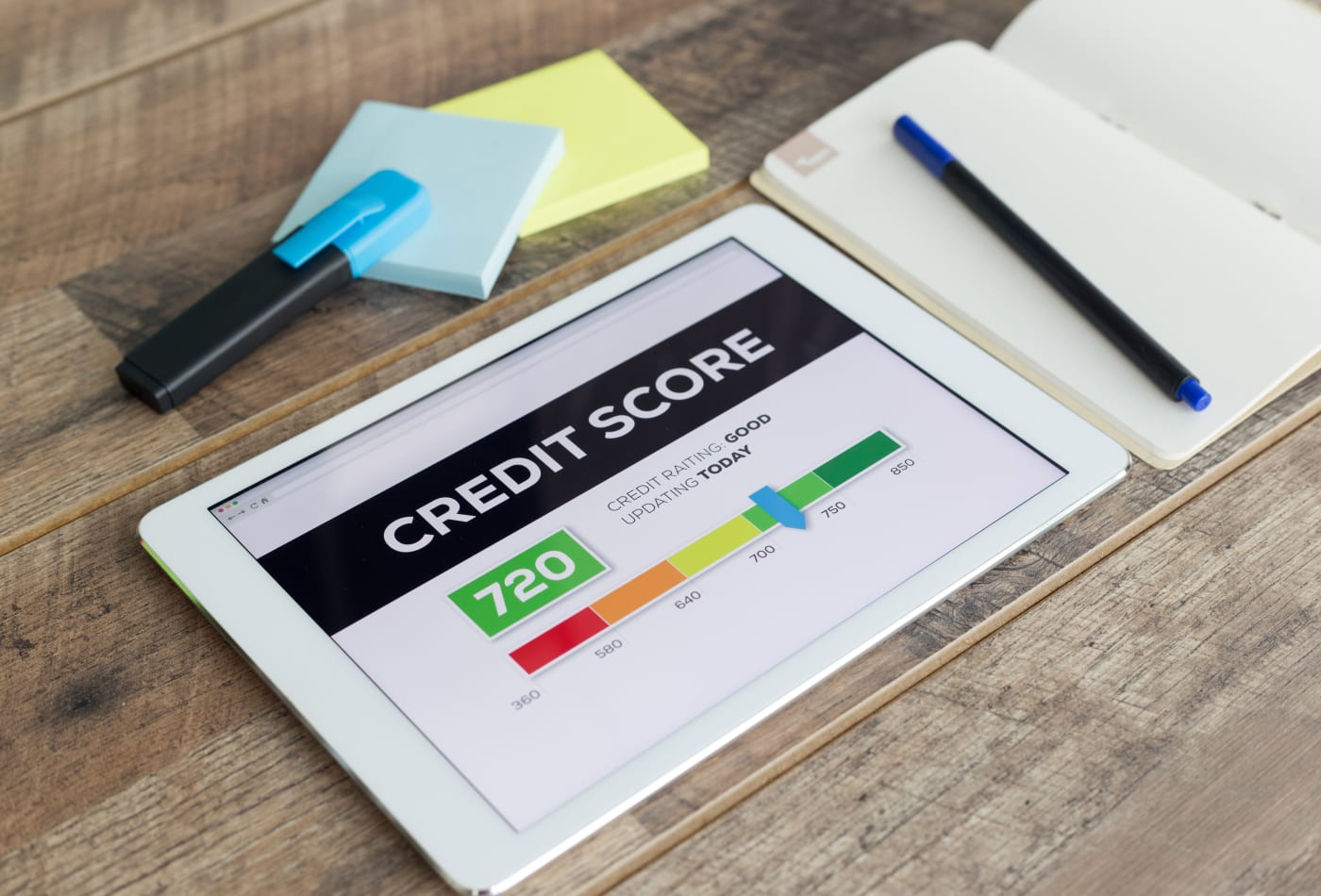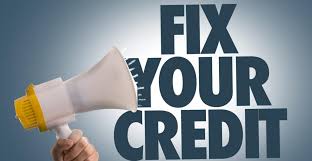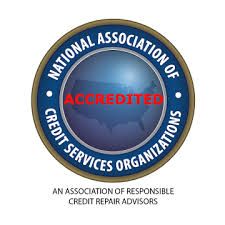By Paul Chaney
•
09 Aug, 2020
Do you know your personal credit score? What about your business credit score ? Many people don’t know either. What’s more, most people don’t check their credit score before applying for a credit card, business loan, or personal loan. Some are shocked later on to discover that errors hurt them — errors they may have been able to correct had they paid attention. Repairing credit has many benefits, including getting more financing, with lower interest rates and favorable loan terms. When you repair credit, it also puts you in a better position to achieve your goals. Whether your goals are personal, such as buying a new home, or business, such as expanding your facility, better credit scores increase your options. That’s why the time to fix bad credit is now before you need to borrow money or bid on a new project. These tips for how to fix your credit will enable you to make positive changes in a short amount of time. 1. Check Your Credit Reports You must know your credit score to fix bad credit, and the best way is to check your credit reports using Experian, Equifax, or Transunion. You can get a free credit report for personal credit — many companies make that available — but business credit scores are another matter. First, the three credit bureaus — Dun & Bradstreet (D&B), Experian, and Equifax — each have different scoring models and types of reports. Second, most are not free credit reports for a business. For instance, a single standard credit report from Experian costs $39.95, while Equifax prices start at $99.95. 2. Identify and Dispute Any Errors Don’t just access these sources to review your credit score. Examine the factors credit agencies use to determine the rating and investigate those that affect your score specifically. Errors are common. In fact, 25% of these reports do contain serious errors. So check them carefully. Removing negative information is an essential part of your credit repair efforts. Identify any apparent errors you find and dispute them with the bureaus and the creditor or information source. You can file disputes on each of the credit reporting agencies’ websites. Personal information – problems with name, address, phone number, Account problems – these could be accounts belonging to someone else, closed accounts showing as open, accounts set up as a result of identity theft, or accounts incorrectly reported as late or delinquent or showing incorrect balances, Inaccurate information – including non-existent bankruptcies or foreclosures, Data errors – problems with how your credit was handled either by the credit agencies or another party, Incorrect inquiries – Checks on your credit that might negatively affect your credit rating In the dispute, identify and clarify each mistake, gather your documents, explain your reasons for disputing the information, and ask that it be removed or corrected. Tip: Collect documentation prior to contacting a credit bureau to challenge items on your credit report. Credit bureaus require you provide proof of any errors in order to remove them from your credit report. As a result, you must present credit card statements, court documents or whatever else necessary to verify a credit report is in error. 3. Monitor Your Credit Score Regularly Monitor your personal credit score regularly to check for changes. Your goal should be to get your score to 633 or above. You may be amazed to see the difference even small steps toward improvement can make. The reporting agencies update scores routinely, so check at least once a month. Also, some credit reporting agencies will send email alerts any time your score changes. Sign up for those if available. Personal credit monitoring services typically make suggestions for how to improve your credit score, and some even track spending. As with any other metric, establishing a baseline and then monitoring changes will put you on a path to credit repair improvement. In addition to individual credit reports, business credit reporting agencies offer annual subscription plans, which allow you to check your credit history, credit report, and score for one price. Charges can run into the hundreds of dollars, but it’s a way to stay apprised of your score and evaluate your credit repair activities. That can come in handy when you need to finance commercial real estate, office equipment, or fulfill another business need. Tip: Just like with your personal credit score, check your business credit reports for accuracy. You can also contact the business credit bureaus and add information to your business profile, so the bureau has a more complete history. 4. Make Payments on Time Nothing affects a credit score more adversely than a history of late payments. Payment history makes up 35% of your FICO Score, according to Experian, and FICO Scores are used in 90% of credit decisions. Late payments also stay on your credit report for up to seven years. Plus, their presence on a credit report, including the total number, how late they were, and how recently they occurred, are correlated with future credit risk. People without a late payment are much more likely to pay on time in the future. Now your credit card or loan statement may say a payment is past due after 15 days. However, for credit reporting purposes, a payment isn’t considered past due until after 30 days. Once you pass that deadline, your creditors can choose to report you to the credit bureaus, impacting your creditworthiness. Make it a priority to pay your creditors on time every month. Even if you made payments late in the past, you begin to build credibility that will result in higher credit scores in time. Tip: Track your payments carefully paying those closest to passing the 30 day mark first. Setting reminders is an excellent way to ensure you never miss a payment. There are several ways to do this: Calendars on your computer or mobile device, Text or email reminders from your bank or credit card lender, Automatic payments via your business bank account. Regarding the last option, make sure you have sufficient funds to cover the draft. Overdraft fees will eat away at your balance and could hurt your credit score rather than help it. ) 5. Don’t Have a Separate Business Entity? Establish One Credit bureaus can’t track your payment history if they don’t know your company exists. That’s why its best to make your business a separate entity. You can do that in several ways: Set up a corporation or LLC – These structures will help you minimize personal liability for the business. Get an EIN (Employer Identification Number) – You get this from the IRS, and it’s required if you have employees or are an S corporation. Get a D-U-N-S Number – A D-U-N-S Number is a unique identifier Dun & Bradstreet assigns to track financial transactions of businesses. It means D&B has validated your company, something lenders and vendors rely on when deciding whether to do business with you. Get a business phone – Having a business phone number builds credibility. Plus, you’ll need it to register for a D-U-N-S Number. Open a business checking account – Commingling business transactions with personal is a recipe for trouble, especially during tax time when you have to look for deductions. That’s why it’s imperative to maintain a strict separation between personal accounts and business accounts. Tip: Deposit all business revenues into the business bank account and pay yourself a salary or transfer funds from the business account to your personal account — not the other way around, 6. Lower Your Credit Utilization Rates Small business owners need to keep credit utilization rates on both personal and business credit cards low. Under 30% is recommended. That’s important because credit utilization is the second most important factor in credit scores, right after payment history. Your credit utilization rate is calculated by taking the total of all your credit card balances and dividing it by the sum of all your credit card limits. It’s to your benefit to keep your credit utilization under 7%. That puts you in the“very good” credit score range of 740-799. Even better, holding it between 1 and 3% can give you an “exceptional credit” score of 800-850. Do not have 0% credit utilization, however. You aren’t building credit if all your credit cards show no balance. In fact, your score could be lower. So use both your business and personal credit cards and lines regularly, but pay them down or off early every month. 7. Increase Your Credit Limit by Opening New Credit Cards One way to lower your credit utilization rates is by applying for another card. This generates a hard inquiry, which lowers your credit score in the short-term, but the added credit amount will increase your score in the long-term. This, in turn, helps your credit repair efforts and offset credit card amounts that exceed the 30% recommended limit by increasing your available credit limit. A problem arises, however, if you run up the balance on the new card. Your credit utilization percentage goes back up as do your credit balances. But as long as you don’t increase your credit card balances, an upturn in your credit limit should reduce your utilization rate and improve your credit scores. Tip: Beware! Don’t apply for several credit cards within a short period. Too many “hard” credit pulls will damage your personal credit. 8. Pay Down Business Debt Another way to lower your credit utilization rates is to pay down as much business debt as possible. Consider this simple strategy for credit repair. Either pay down the account with the highest annual percentage rate or pay off the lowest balance. Say you pay on two accounts. One charges an annual percentage rate of 20%. The other boasts a much lower annual percentage rate of 9%. Pay down the balance on the account with the higher percentage rate first. This decreases the overall interest owed and improves your credit history. On the other hand, say you have new credit, Perhaps you just bought a new laptop for $500. Consider paying off this low balance first. You may need to make minimum payments on your other accounts. However, paying down this balance fast looks great on your credit report. 9. Open a Business Credit Card Account A business credit card gives your company credibility and helps establish good business credit or improve business credit ratings. It’s also another way to separate business expenses from personal. Putting all your business transactions on a card intended for that purpose comes in handy during tax time, making figuring out deductions a much easier task. Just as with a personal credit card, make small purchases with the new credit card and pay the account off in full each month. Do this for several months to establish a track record of timely payments on new credit. This process demonstrates creditworthiness when you need funding to grow your business. Just make sure the new credit card company is one that reports to a business credit bureau. Here’s another reason to get a new credit card for your business. Even though your personal credit score will be affected short-term due to the hard inquiry, the business line of credit is separate from your personal credit. That means whatever happens with your business card should not affect your personal credit score. 10. Learn to Build Your Business Credit Establishing a business credit history is a challenge for startups and smaller businesses. This is why setting your business up as a separate entity is so important. Fleshing out your business credit history is too. Learning how to build business credit is vital to fixing a bad credit score, so start taking actionable steps to achieve that goal right away. Tip: A useful first step is to purchase business credit reports, to see if and how your business appears on these. Also, create? ?a? ?profile? ?with? ?the? ?three business? ?credit? ?bureaus: Dun & Bradstreet, Experian, and Equifax. 11. Add Positive Trade References Another credit repair strategy is to do business with “trades” that report to business credit agencies. Not all vendors and suppliers share payment data, but the bureaus can tell you which ones do. To calculate its PAYDEX score, Dun & Bradstreet requires a minimum of three trade references which you can add. Having a low score can result in higher interest rates, smaller loan amounts, or the inability to raise capital. That’s why you want to add “positive” references, those that will help you build good credit. 12. Keep Older Credit Accounts Open Pay off existing debts when you can, but don’t close the account. Your oldest accounts are valuable. The reason is that length of credit history is a major factor credit agencies use to determine your score. The older these accounts are, the better. That’s particularly true if you haven’t had any recent slip-ups such as late payments or delinquencies. Another way old accounts help is by again reducing your overall credit utilization. You will have a lower credit utilization percentage if the account is open but has a zero balance. Different credit bureaus weigh the importance of credit age differently. FICO factors it in at 15% of the total score, for example. Regardless, keeping those old accounts open will help boost your score. 13. Diversify Your Credit Mix How much credit you have, the balances owed, payment history — all of that factors into your score. Your credit mix does too. It counts for as much as 10% of your overall rating. What’s a credit mix? It’s the variety of credit you have in your profile. Essentially, there are only two types of credit that apply: installment and revolving. Installment credit includes things like mortgages, car loans or term loans. They have a fixed end date with payments due every month. Revolving credit includes credit cards or lines of credit. These are accounts that have no fixed end date or set amount due each month. Ideally, you want a mix of both. It demonstrates that you can manage multiple types of accounts. Having only one or the other will make it harder to increase your score. 14. Get Authorized to Use Someone Else’s Account Becoming an authorized user on another person’s credit card account can give your score an immediate boost. Just be sure it’s with a person who has a better credit score than you! There is a risk for the person authorizing your use. According to the law, authorized users are not the persons responsible for repaying the debt. That burden falls to the primary user. Also, this form of “piggybacking” credit doesn’t necessarily help the authorizer build his or her credit so much as it does the person with a low score. 15. Apply for a Secured Bank Loan If you are unable to get a loan based on your creditworthiness, apply for a secured bank loan. A secured loan is based on collateral, such as a car, CD, savings account, or equipment. If you are unable to make payments, the lender can seize your asset, which means you take on additional risk. But, timely payments over a long period can benefit you with a higher credit score. 16. Negotiate to Remove Delinquencies One way to remove a negative mark on your credit such as a delinquency is to contact the creditor to try and negotiate a partial payment. In turn, the creditor agrees to reclassify the debt as “paid.” Assuming you strike a deal, get the agreement in writing and pay only once it’s in hand. 17. Get an Immediate Credit Boost Experian offers a way to improve your FICO Score “instantly,” according to the website. It’s through a program called Boost , a free opt-in service that allows users to add cell phone and utility bill data to their credit history. It works by connecting the bank account they use to pay those bills to Experian. Assuming payments are made on time, users should see an immediate score increase. Credit Repair Pays Off It will take time and focused effort, but you can repair your credit and improve your credit scores. However, you must make it a priority to repair your credit stick with it. Follow the steps outlined above, and you will see. The benefits will pay off in the form of the capital you need for business growth. In the meantime, if you need options while your credit scores are low, contact Approved Credit Restoration at 602-456-0427 or https://www.ApprovedCreditRestoration.com












